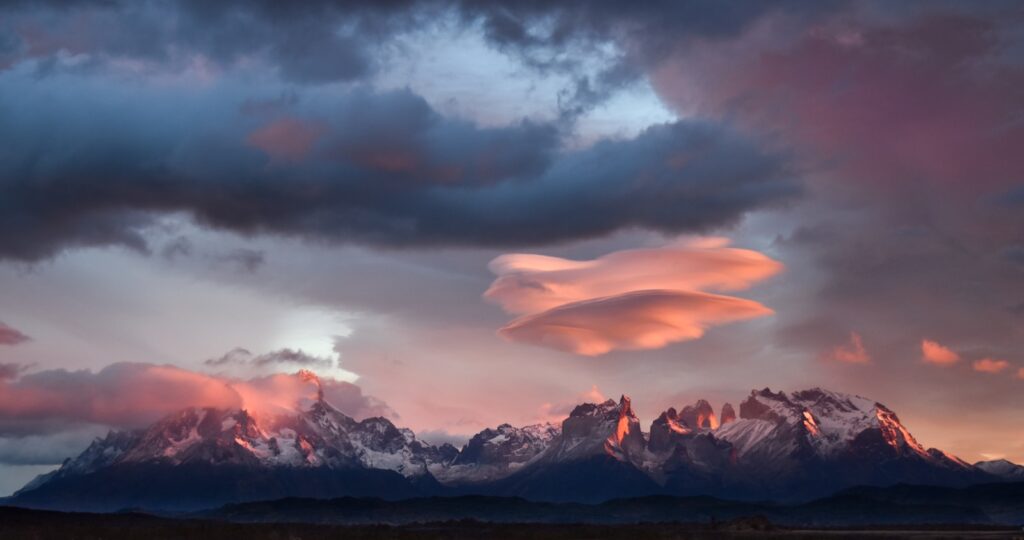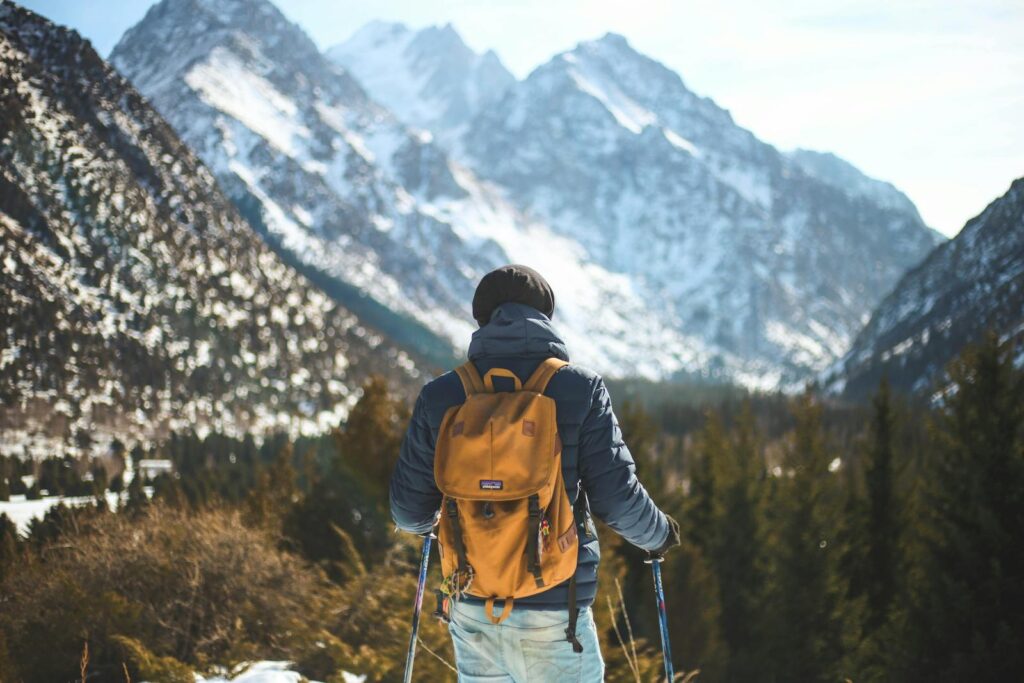Weekend adventures offer a perfect escape from the monotony of daily life, providing opportunities for discovery, growth, and unforgettable experiences. Whether hiking through mountain trails, kayaking down rushing rivers, or exploring hidden urban gems, these short expeditions can leave lasting impressions that rival longer vacations. But what truly makes a weekend adventure stand out in our memories? To answer this question, I’ve gathered insights from seasoned explorers who have mastered the art of the memorable weekend getaway. Their collective wisdom reveals that memorable adventures combine careful planning with spontaneity, physical challenges with moments of reflection, and personal goals with shared experiences.
Embracing the Unexpected

According to adventure photographer Elena Ramirez, the most memorable weekend trips often involve embracing unexpected situations. “My most vivid memories come from when things didn’t go as planned,” she explains. “A sudden rainstorm forced us to take shelter in a cave during a hiking trip in Arizona, where we discovered ancient petroglyphs we would have otherwise missed.” This sentiment echoes across many explorers’ experiences—when plans change due to weather, trail conditions, or other unforeseen circumstances, the resulting detours often become the highlight of the journey. Rather than rigidly adhering to an itinerary, successful adventurers remain flexible and view disruptions as opportunities for discovery rather than disappointments.
Disconnecting from Technology

Wilderness guide Marcus Thompson emphasizes the importance of digital detox during weekend adventures. “When people fully disconnect from their devices, they connect more deeply with their surroundings and companions,” he observes. “I’ve guided hundreds of weekend trips, and I can always tell which groups will have the most meaningful experience by how quickly they stop checking their phones.” Many explorers recommend setting clear technology boundaries before departure—perhaps allowing phones only for photography or emergency communication. This intentional disconnection heightens sensory awareness, promotes mindfulness, and creates space for genuine conversations and observations that might otherwise be missed in our notification-filled lives.
Challenging Physical Limits

Mountain climber Sarah Chen believes physical challenges significantly enhance the memorability of weekend adventures. “When you push your body beyond what’s comfortable—whether that’s hiking an extra mile, climbing a steeper route, or trying a water sport that intimidates you—you create a profound sense of accomplishment,” she shares. This physical exertion triggers the release of endorphins, creating positive associations with the experience. Moreover, overcoming physical challenges often builds confidence that extends beyond the adventure itself. Many explorers recommend including at least one activity that stretches participants slightly beyond their comfort zones, creating what psychologists call “optimal anxiety”—just enough challenge to be stimulating without becoming overwhelming.
Engaging All Five Senses

Cultural explorer and travel writer James Okafor suggests that truly memorable adventures engage all five senses deliberately. “Most people focus primarily on the visual aspects of adventure—the views, the landscapes, the perfect Instagram shots,” he notes. “But when I interview people years after their journeys, they often recall the non-visual sensory experiences most vividly: the scent of pine forests, the texture of smooth river rocks, the taste of freshly picked berries.” Successful weekend adventurers often incorporate sensory rituals into their journeys—perhaps a morning coffee brewed outdoors, feeling the texture of different tree barks, or closing their eyes to focus on distant bird calls. These multi-sensory experiences create richer, more detailed memories that remain accessible long after the adventure ends.
Capturing Moments Meaningfully

While documentation can enhance memories, adventure photographer Leila Sandoval warns against excessive photo-taking. “I’ve watched people experience entire adventures through their phone screens,” she laments. “The most memorable trips involve thoughtful documentation—perhaps setting aside specific times for photography, then being fully present otherwise.” Many explorers recommend creative documentation approaches beyond standard photographs: writing haiku about specific moments, creating small sketches, collecting (permissible) natural items like interesting rocks, or recording short audio clips of environmental sounds. These alternative memory-capturing methods often prove more evocative than conventional photos and encourage deeper engagement with surroundings.
Incorporating Local Knowledge

Cultural anthropologist and adventure consultant Maya Rodriguez emphasizes the value of local expertise in creating memorable experiences. “The richest weekend adventures almost always involve connecting with locals who share their knowledge, whether that’s a forest ranger, shop owner, or resident you meet on the trail,” she explains. These local interactions provide context, history, and insider knowledge that transform generic experiences into unique ones. Many seasoned explorers recommend researching local guides before trips, visiting community gathering places like markets or cafes, and approaching interactions with genuine curiosity rather than simply extracting information. These authentic exchanges often become cornerstone memories of weekend adventures, providing cultural dimensions beyond what any guidebook could offer.
Creating Meaningful Rituals

Adventure psychologist Dr. Nathan Rivera has studied how rituals enhance the memorability of outdoor experiences. “Repeated meaningful actions create psychological anchors for our experiences,” he explains. “The groups I’ve studied who incorporate intentional rituals—whether that’s a gratitude circle each evening, a morning movement practice, or a special meal tradition—consistently report more vivid and lasting memories of their adventures.” Many experienced weekend adventurers develop personal or group rituals: perhaps a toast at the highest elevation point, a moment of silence at sunset, or a shared reading before sleep. These rituals create psychological punctuation marks that help organize memories and enhance their emotional significance.
Balancing Planning and Spontaneity

Former military survival instructor turned adventure consultant Rebecca Winters advocates for what she calls “structured spontaneity.” “The most memorable weekend adventures have a solid framework—transportation, shelter, safety plans—but substantial unscheduled time within that framework,” she notes. This approach provides necessary security while allowing for the discovery and serendipity that often create standout memories. Many explorers recommend planning approximately 60% of each day with firm activities, leaving the remaining time for unexpected explorations, extended breaks at particularly beautiful spots, or pursuing interests that emerge during the journey. This balance acknowledges that while preparation creates a foundation for success, over-scheduling can prevent the most meaningful experiences from occurring.
Embracing Weather Challenges

Meteorologist and avid kayaker Dr. Michael Tran believes weather adversity often creates the most enduring memories. “People remember the weekend they paddled through unexpected fog or hiked during gentle snow much more vividly than perfect-weather adventures,” he observes. “These weather challenges create contrast and problem-solving opportunities that strengthen both memories and bonds between participants.” Rather than canceling plans due to imperfect weather, experienced adventurers often adapt activities to safely accommodate conditions, bringing appropriate gear and adjusting expectations. Many report that these weather-challenged experiences provide their most treasured stories and create a shared sense of resilience among participants that perfect-weather adventures rarely match.
Creating Contrast with Daily Life

Psychologist and adventure therapy specialist Dr. Ananya Patel explains that the most memorable weekend adventures create significant contrast with participants’ everyday lives. “Our brains are wired to remember novelty and difference,” she explains. “A city dweller will find a silent forest extraordinarily memorable, while someone from a quiet rural area might find an urban exploration equally striking.” This psychological principle explains why many travelers find cross-cultural experiences so memorable—they represent maximum contrast with familiar patterns. Seasoned weekend adventurers often deliberately seek environments and activities that differ dramatically from their daily routines, whether that means digital professionals seeking wilderness isolation or office workers engaging in physical challenges that contrast with sedentary workweeks.
Incorporating Learning Experiences

Environmental educator Carlos Vega has found that integrated learning experiences significantly enhance adventure memorability. “When people learn something new—whether that’s identifying edible plants, understanding geological formations, or learning basic astronomy—that knowledge becomes intertwined with their memory of the place,” he explains. This educational component provides cognitive hooks that strengthen memory formation and retrieval. Many explorers recommend incorporating structured learning opportunities into weekend adventures: perhaps a guided interpretive hike, a workshop with local artisans, or evening sessions identifying constellations. These learning experiences transform passive sightseeing into active engagement, creating multilayered memories that include both experiential and intellectual components.
Ending with Reflection

Leadership coach and wilderness guide Sandra Morrison emphasizes the importance of structured reflection in creating lasting adventure memories. “Without dedicated reflection time, even amazing experiences can blur together or fade quickly,” she cautions. “The groups that build in time to process their experiences—whether through group discussion, journaling, or creative expression—consistently report more vivid and meaningful memories months later.” Many experienced adventurers incorporate reflection practices throughout their journeys: perhaps morning intention-setting, evening sharing circles, or post-adventure gatherings to share photos and stories. These reflection practices help consolidate memories, extract meaning from experiences, and integrate adventure insights into everyday life—transforming a pleasant weekend into a genuinely transformative experience.
The collective wisdom from these seasoned explorers reveals that truly memorable weekend adventures combine careful preparation with openness to the unexpected. They balance physical challenge with sensory awareness, technological disconnection with meaningful documentation, and personal achievement with shared experience. By incorporating these elements—embracing the unexpected, disconnecting from technology, challenging physical limits, engaging all senses, capturing moments meaningfully, incorporating local knowledge, creating rituals, balancing planning with spontaneity, embracing weather challenges, creating contrast with daily life, incorporating learning, and ending with reflection—weekend adventurers can create experiences that remain vivid and meaningful long after they return home. These compact journeys, when approached with intention and awareness, can provide memories and insights that rival much longer expeditions, proving that the memorability of an adventure depends less on its duration than on how fully we engage with each moment.

